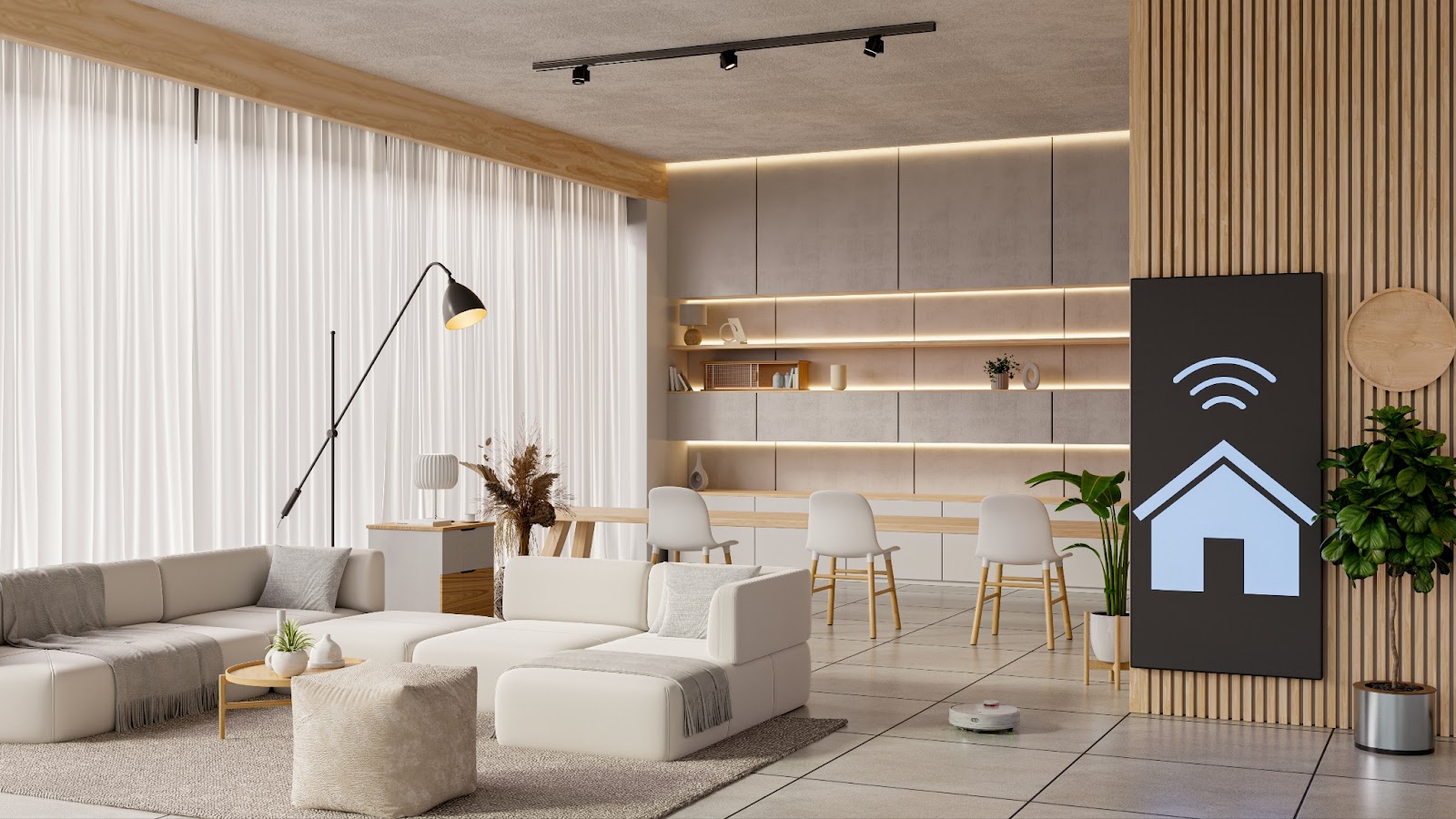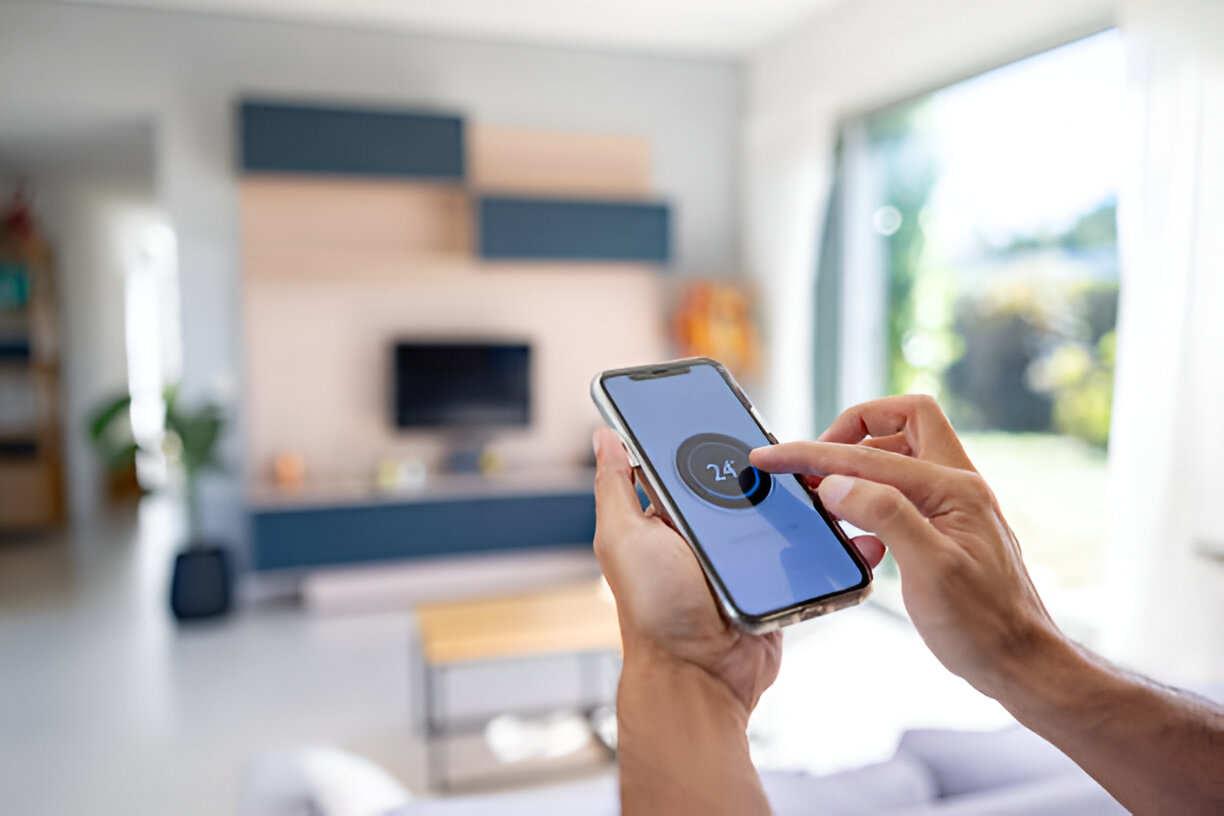(Image Source: elements.envato.com)
Smart home appliances are becoming increasingly popular. Most people want a smart home these days, but not everyone has the budget—or do they? A lack of financial planning shouldn’t stop you from upgrading your home. Make the most of your budget with these tips:
Get the Essentials First
Start with the basics. Smart security cameras, smart lighting and smart locks are necessities all households should have. They enhance energy efficiency, improve home security and make daily routines more convenient.
Investing in these first ensures you make the most out of your budget.
Look for Affordable Smart Plugs
Smart plugs are sockets that function as remote controlled switches. Anything plugged in will become a smart device, giving you control. These plugs are the most budget-friendly way to automate your home.
They allow you to control traditional appliances without splurging on expensive devices.
Use Wireless Connectivity
Skip the expensive rewiring. Wireless connectivity through Wi-Fi, Zigbee or Bluetooth Low Energy (BLE) allows for seamless integration of smart home appliances. This means you can set up a smart home without hiring professionals.
Use Smart Home Hubs and Voice Assistants
Smart home hubs and voice assistants make automation more accessible. They allow you to unify gadgets and carry out commands via voice control. You can manage multiple devices simultaneously without spending on high-end devices.
Choose a hub that supports multiple protocols like Z-Wave or Matter for maximum compatibility.
Buy In Bulk
Consider buying in bulk to offset the cost. Look for deals where multiple devices are included or packages that come with several compatible devices. Buying in bulk can also reduce shipping cost, making it even more cost-effective.
DIY Smart Home Setup
Many smart home appliances come with simple installation guides. No need to hire an expert—with some basic knowledge, you can set up smart security cameras, smart locks and even smart blinds without extra costs.
With that said, this is more suitable for small scale set ups. We recommend hiring a professional for more comprehensive upgrades.
Is a Smart Home Worth It?

(Image Source: elements.envato.com)
Smart homes are worth it when you know what you want. That means upgrading your house based on necessities. Some home owners may only need certain elements, like smart security cameras and smart sensors to secure your compound.
Others require automated solutions to help around the house, like smart blinds and curtains or smart lighting. On the other hand, some households only need smart home entertainment systems to have a better movie night.
Whatever it may be, making the “smart” choice requires your fair share of research. So find out what you really need, and make sure you can spend within your budget. On that note, going full smart home is never a bad idea, especially if you can afford it.
The Benefits of Having a Smart Home

(Image Source: elements.envato.com)
Home Security:
Smart home systems can enhance security. Smart locks, doorbells and cameras can provide real-time monitoring and remote access. Compared to traditional security measures, smart systems allow you to check on your home anytime, anywhere.
Energy Efficiency:
Smart appliances help reduce energy consumption. Smart thermostats adjust temperatures based on your habits, while smart lighting turns off when no one is in the room. These small changes can lead to big savings on utility bills.
Convenience:
A smart home makes life easier. Control your lights, appliances and security system with a simple voice command or tap on your phone. No more running around to check if you locked the door or turned off the lights.
Customisation:
Tailor your smart home to fit your lifestyle. Set schedules for lights and appliances, automate morning and bedtime routines or create custom scenes for different moods.
Whether it’s “movie night” mode or “away from home” security settings, the choice is yours.
Future-Proofing:
Technology keeps evolving, and a smart home grows with it. Most smart devices receive software updates to improve functionality. This ensures your home stays up to date with the latest advancements.
Wow Factor:
Smart homes have that “wow factor”. It has the potential to impress your guest, especially if it’s their first time in a smart home. Imagine watching your curtains and lights open and close on command, or having your coffee brewed automatically.
These little details make your home feel futuristic, adding a touch of luxury to your space.
Prepping for Smart Home Automation

(Image Source: elements.envato.com)
Once you’ve decided what to upgrade, it’s important to map out how you’re gonna install the smart home appliances (especially if you DIY). This will ensure a smooth installation process, minimising the chances of errors (which can be a hassle if you have to start from scratch).
Ask yourself the following questions:
- How are the devices going to work in tandem with one another? Find ways to integrate devices for seamless automation. For example, should your smart lights turn on when you unlock the smart door lock?
- Which one should be installed first? It’s important to start with core systems before moving on to convenience-based devices.
- What central hub do you use? The central hub is the main control panel for all your devices. Choose a control hub that has features like voice automation or multi-user support.
- Will your internet connection suffice? Having a stable and strong internet connection is crucial. Most devices rely on Wi-Fi, so check if your current router can handle multiple smart appliances.
- Will you need other technology to be connected? Some smart devices use Zigbee, Z-Wave or Bluetooth instead of WiFi. These systems require a compatible smart home hub to bridge the connection.
When to Hire Professionals?

(Image Source: elements.envato.com)
When in doubt, get professional help. We can set up your smart home form A-Z, saving you the hassle of going through the process. Nonetheless, consultation does come at price—which can be tailored to your budget.All in all, don’t let budget constraints stop you from upgrading your home. Find out more and contact us today!





